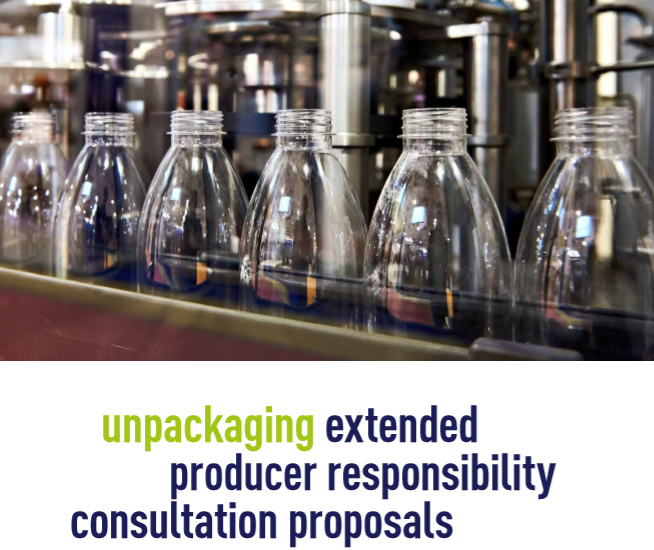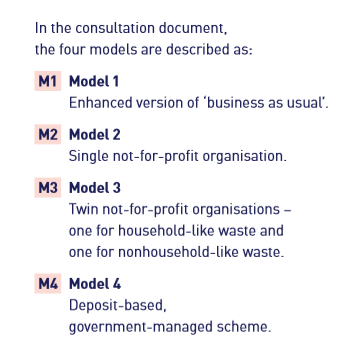Suez has said that none of the four options set out in the government’s consultations on reforming the packaging producer responsibility system is “suitable in its entirety”.
In a report released last week (18 April), the company said it instead favours a ‘hybrid’ model comprising the best elements from each option to “meet the desired outcomes”.
Options
The report, which Suez has called ‘Unpackaging extended producer responsibility [EPR] consultation proposals’, provides an assessment of Defra’s proposals across the four consultations which were published in February.
This covered options for EPR, collection consistency, deposit return schemes and a plastic packaging tax.
For EPR, Defra set out four EPR governance models in the 125 page consultation, which are summarised by Suez below.
Suez’s report explains the deposit based mechanism from model 4, combined with the element of registration, payment and control from the other options of governance, “best delivers against the principles of a good EPR system”.
It also said it favours the business waste payment by performance, but said this should apply to local authority collections as well.
Analysis
The author of the report, technical development director at SUEZ, Stuart Hayward-Higham said: “With the publication of this short report we have sought to share insight from our own analysis, our sector experience and our discussions with partners and stakeholders across the value chain. We have used this to assess the extent to which Defra’s various options meet the ambitions we set out last year, with others, for a world-class EPR regime which brings us a step closer to the circular economy we all strive for.”
Mr Hayward-Higham added: “We applaud Defra for the work that they have done, but having conducted our own comprehensive analysis in collaboration with many others, do not believe any single model of those presented in the consultation documents delivers on all ten of the principles of a world-class EPR system.”
The Suez report comes around a month before the deadline for responses to the consultation, and its analysis will be included in its response.
Ecosurety
“We applaud Defra for the work that they have done, but having conducted our own comprehensive analysis in collaboration with many others, do not believe any single model of those presented in the consultation documents delivers on all ten of the principles of a world-class EPR system.”
Stuart Hayward-Higham
Suez
It follows previously expressed sentiment from others regarding a hybrid type of system, including compliance scheme Ecosurety, which unveiled its Centralised Competition governance model (see letsrecycle.com story).
The compliance specialists say this offers an alternative to the four options provided by Government in its Consultation on packaging reform.
Commenting on the Suez proposals compared to their own, Robbie Staniforth, head of policy at Ecosurety, said: “Clearly Suez have been thinking as deeply about these issues as we have over the past few years. We’re pleased to see they have drawn the same conclusion – that industry should not be constrained by the four models and a blend of characteristics is possible.”
Mr Staniforth added: “Defra will no doubt be pleased to see many similarities between their thinking and ours, which should simplify the job of summarising industry responses. We are slightly concerned with how highly the deposit-based government managed scheme rated against Suez’s own criteria though. We can foresee many similar shortcomings of the current PRN system in this model.”
The post Suez calls for ‘hybrid’ EPR system appeared first on letsrecycle.com.
Source: letsrecycle.com Packaging





